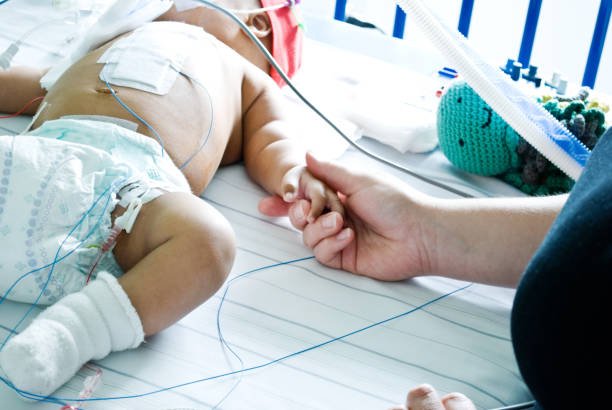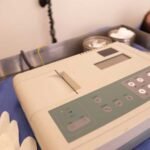
Parents Look Over: Does the Baby Need a Newborn Ultrasound at Their Own Expense?
Parents often ask: Is it necessary to have a newborn’s heart ultrasound done at their own expense? In fact, this check-up is more like the act of “buying insurance”; when you have a lot of money in life, you will want to spend more money to buy more insurance; but when you are financially strapped, insurance becomes something that can be sacrificed. The same is true for the self-paid cardiac ultrasound of newborns, because the results of most children’s examinations are almost normal or slightly abnormal, and it only needs to be tracked.
How high is the risk of heart disease in newborns?
Heart defects are diagnosed in at least 1 in 150 births – that’s an average of 13 babies each day in the UK – with more diagnoses later in life. Estimates suggest as many as 1-2 per cent of the population may be affected. Heart defects are the most common congenital anomaly in babies born in the UK. This probability may sound quite high at first glance. It means that one out of every 150 newborns will have congenital heart disease.
In fact, most of these children with congenital heart disease have simple congenital heart disease
- Atrial diaphragmatic defect
- Ventricular septal defect
- Open arterial catheter
- Pulmonary artery stenosis
What to do if there is a septal defect in the ventricle? There are 4 types of ventricular septal defects in newborns. The size of the defect affects the self-healing rate.

Is the 0.1% chance of severe congenital heart disease considered high?
In fact, it is not that high; the probability of discovering that a child has severe congenital heart disease through “newborn echocardiography at your own expense” is actually even lower than 0.1%.
The statistics just mentioned are “prevalence rate” statistics, which reflect the status of the entire group. Because most children with congenital heart disease, especially severe congenital heart disease, will develop “severe” symptoms after birth, such as cyanosis (purple) lips, shortness of breath, heart failure, etc., so after birth Soon, he will be sent to the intensive care unit for examination and care.
On the other hand, prenatal fetal heart ultrasound is becoming more and more accurate. Many congenital heart diseases are diagnosed before the child is born and treated immediately after birth.
Therefore, for healthy babies with normal prenatal examinations and no symptoms after birth, the probability of diagnosing complex congenital heart disease through neonatal cardiac ultrasound at their own expense is actually far lower than 0.1%.
In addition to cardiac ultrasound, newborns are actually required to undergo “critical heart disease screening”!
After the baby is born, the doctor will tell the parents that the child will undergo many newborn screening tests! These items are indeed very complicated, and it is impossible for parents to remember them; one of them is “Critical Heart Disease Screening”, which is to obtain blood oxygen concentration results by measuring the newborn’s right upper limb and lower limb. If the difference is too large or If the blood oxygen concentration is too low, further examination is required.
A study by Taipei Veterans General Hospital found that among 6,387 newborns screened, 16 babies had screening problems, and 5 of them were eventually diagnosed with critical heart disease. Therefore, the probability of detecting critical heart disease through screening is approximately 0.07%.
In addition to various examinations, there is actually we have “doctor”!
Whether it is a full-term infant or a premature infant, there will definitely be a doctor to help the child do a basic physiological examination, including heart sound auscultation. Many congenital heart diseases are accompanied by heart murmurs. Generally, when a newborn is found to have a heart murmur, further ultrasound examination is required to confirm whether there is any abnormality in the heart structure.

Under layers of protection, risks are minimized!
The annoying thing about medicine is that we can say that the chance of having heart disease is less than 0.01%, but there is no way to say that there is no heart disease 100% because there are exceptions to everything. With all the layers of protection, it sounds like no children in UK will have undiscovered congenital heart disease after a series of examinations? But this is not the case. There are still a small number of children with congenital heart disease whose examinations after birth are normal, but symptoms slowly develop a few months later, and it is only after they see a doctor that they are diagnosed with congenital heart disease.
Through self-paid cardiac ultrasound, the chance of undetected heart disease can be reduced to an even lower level
Having said all that, should I have a newborn cardiac ultrasound done at my own expense? For my own child, I will definitely do a heart ultrasound for him. After all, ultrasound is a non-invasive examination and provides sufficient information. Most congenital heart diseases can be diagnosed through cardiac ultrasound. It is a very cost-effective inspection.
Of course, cost-effectiveness is one thing, but economic capabilities still need to be considered. Neonatal cardiac ultrasound is a “cost-effective” but “non-essential” examination at your own expense. Because children in the UK are actually protected at all levels, many routine screenings and examinations can peel off the cocoons and catch serious heart disease. Therefore, there is no need to worry too much about not having a newborn’s cardiac ultrasound.












